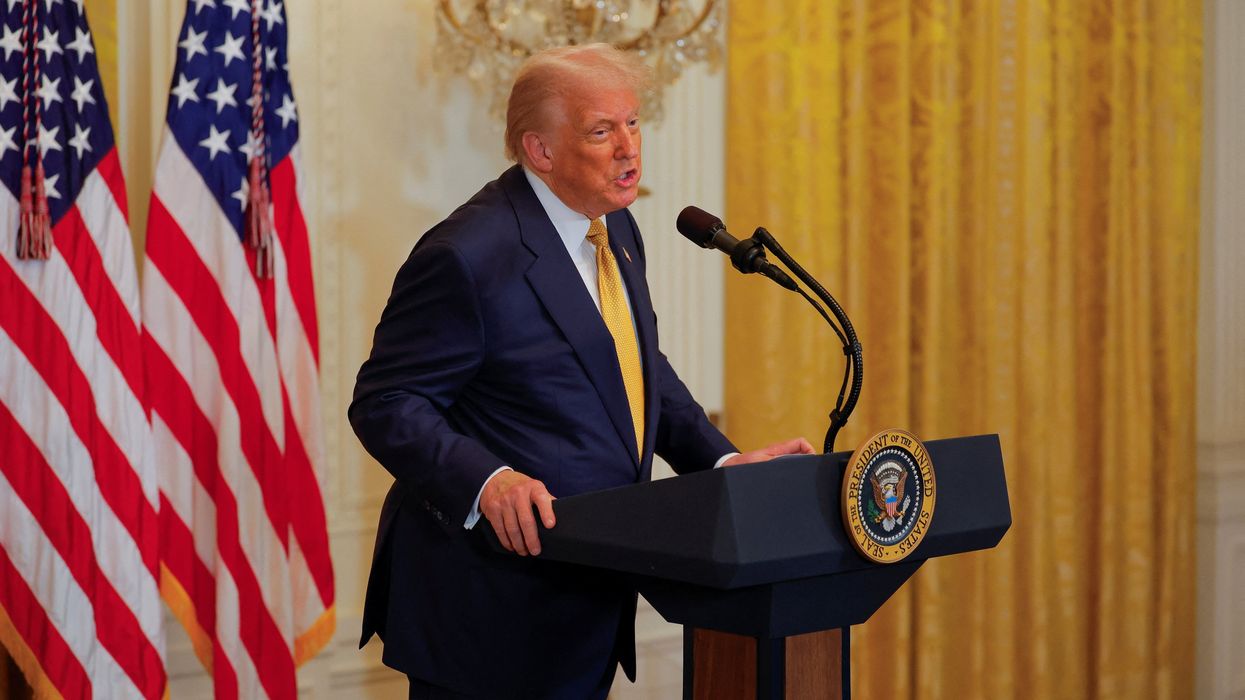During the 2024 presidential race, a wide range of Donald Trump critics — from Democratic nominee Kamala Harris to Gen. John Kelly, Trump's former White House chief of staff — agreed that his behavior was consistent with that of a "fascist."
When CNN asked Harris if she considered Trump a "fascist," she replied, "Yes, I do." And Kelly told the New York Times that Trump "certainly falls into the general definition of fascist."
Fascism, according to many political scientists, is a form of far-right authoritarianism that, during the 20th Century, was exemplified by Germany's Adolf Hitler, Italy's Benito Mussolini and Spain's Francisco Franco in Europe and by Chile's Gen. Augusto Pinochet and Paraguay's Alberto Stroessner in Latin America. Meanwhile, the communist model was embodied by far-left dictators such as Cuba's Fidel Castro and Romania's Nicolae Ceaușescu.
READ MORE: Fox host quickly ends interview with Senate Republican after he freezes mid-sentence
But in a Prospect article published on July 23, scholars Alex J. Kay and Jon-Wyatt Matlack argue that although Trump and the MAGA movement "exhibit undeniable and pronounced authoritarian and anti-democratic tendencies," it isn't consistent with the traditional fascist model.
"Masked agents abducting lawful foreign residents into unmarked vans; unconstitutional deportations to El Salvador; the arrest of a congresswoman conducting oversight of an immigration center; university funding culled — these are surely not the actions of a democratic state," Kay and Matlack observe. "So, what type of state are they the actions of? From the pages of The Guardian to numerous expert seminars, commentators are queueing up to denounce the Trump Administration as 'fascist.' Former Yale philosophy professor Jason Stanley has relocated to Toronto, along with history professors Timothy Snyder and Marci Shore, in order to raise his children 'in a country that is not tilting towards a fascist dictatorship'…. As an explanatory framework, however, fascism inadequately describes what's happening in America."
Kay and Matlack continue, "Why? First, fascist movements tend to harness the power of the state to their own ends."
The scholars note that Mussolini summarized his ideology as "tutto nello Stato, niente al di fuori dello Stato, nulla contro lo stato" —which, in Italian, means "everything within the state, nothing outside the state, nothing against the state." But in contrast, they argue, Trump is "dismantling state institutions in true American style" and taking "the concept of small government…. to its extreme."
READ MORE: 'Could hear Donald say it': Epstein's brother says this line reveals closeness with Trump
"His vision, such as it is, appears incoherent — as exemplified by the push and pull between Elon Musk and Steve Bannon in the early days of this second term, not least over immigration," Kay and Matlack write. "Instead of arbitrating between rivals within his orbit, Trump appears content to dwell on the results of the 2020 election and blame anything and everything on the Biden Administration. This is not fascism, it is a free for all."
READ MORE: 'Could hear Donald say it': Epstein's brother says this line reveals closeness with Trump
Alex J. Kay and Jon-Wyatt Matlack's full article for Prospect is available at this link.


